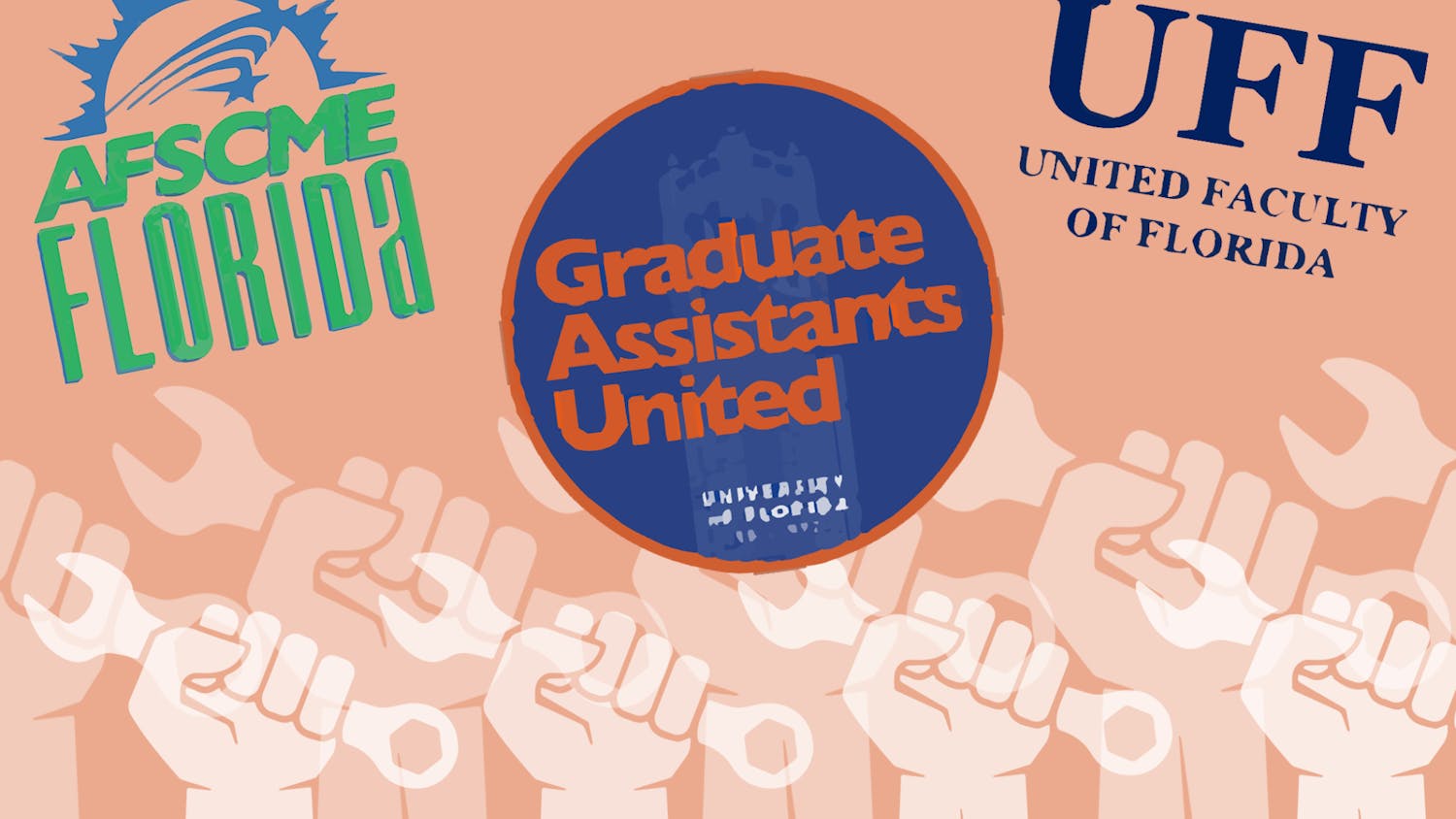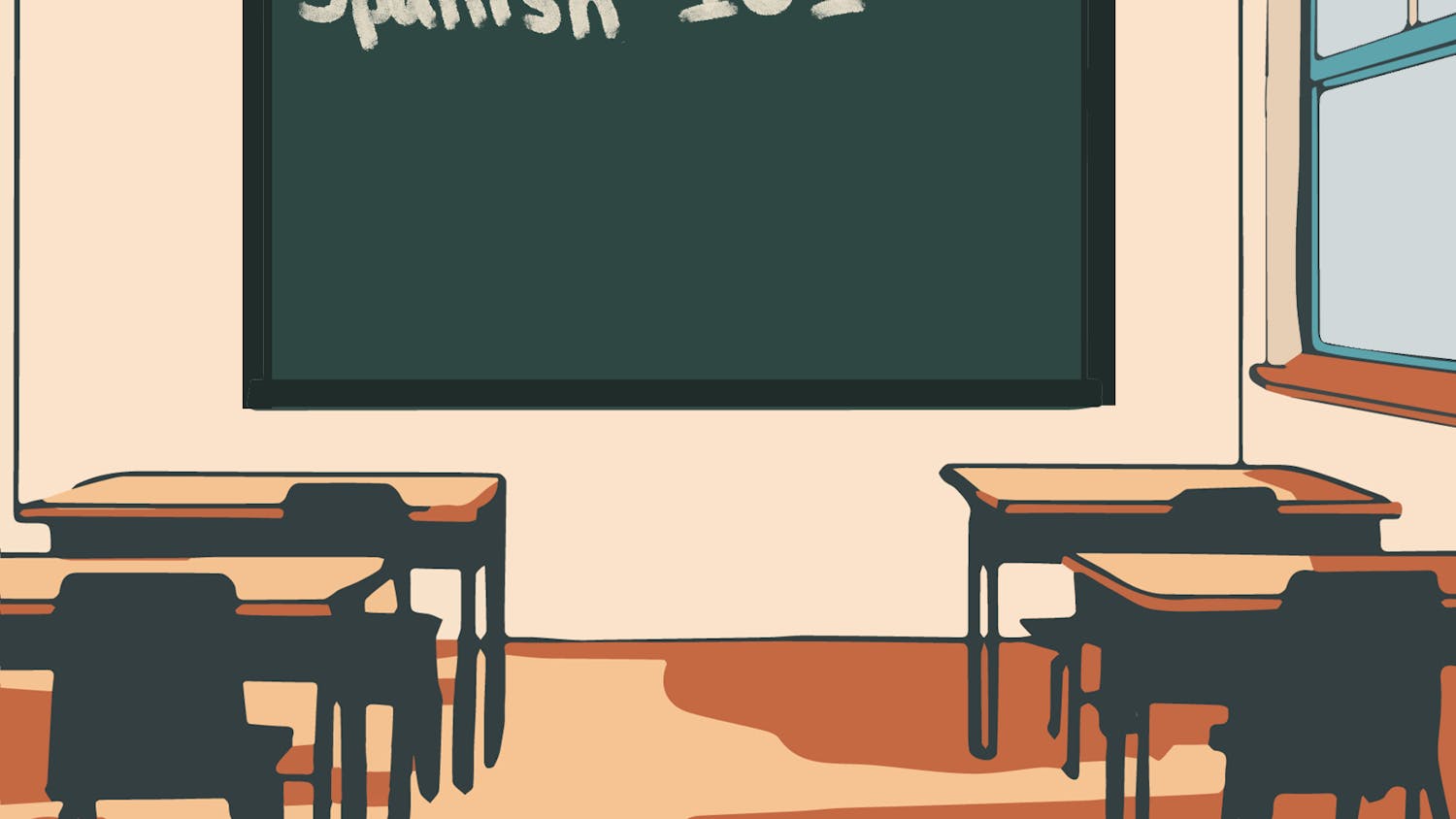For most UF students, Thanksgiving Break means turkeys and pumpkin pies at home. But for international students, it is nothing more than a week off from school.
There are more than 6,000 international students studying at UF, according to the university’s admissions website. While American students travel back home for second servings of mashed potatoes and cornbread on Thursday, some international students will stay in Florida and create their own Thanksgiving traditions.
A Middle Eastern Feast
Mohammad Almatar is looking forward to Thanksgiving Break, even though he doesn’t plan on celebrating it with stuffing and gravy.
"I feel happy for thanksgiving, even though I am not related to it," the UF international student, who is from Saudi Arabia, wrote in an email. "Looking at happy people makes me happy."
Almatar, 20, has been studying English at UF’s English Language Institute for about a year.
On Thursday, he said he will likely visit Kabab House, near the intersection of West University Avenue and Northwest 13th Street. He’ll order biryani, a Saudi delicacy made of mixed spices, rice and either vegetables or meat.
He said Saudi Arabians have feasts like Thanksgiving, called Eid al-Fitr and Eid al-Adha.
"My holidays are kind of similar to thanksgiving because we gather together, eat (special) food and give each other some gifts," Almatar said.
Eid al-Fitr occupies the first three days of the 10th Islamic month of the calendar, while Eid al-Adha takes up four days in the middle of the 12th Islamic month.
Although Almatar said he doesn’t plan on having a traditional feast, he will still speak with his family Thursday. He’ll Skype with his parents, brother and sister, who still live in the Middle East.
"In the rest of (the) time, I might go hang out with some friends," he said.
A Colombian Exchange
Marco Iguaran won’t eat turkey on Thanksgiving Day.
For the UF international student from La Guajira, Colombia, turkey-eating is traditionally saved for New Year’s Eve or Christmas.
Iguaran has lived in the U.S. since January. He earned his bachelor’s degree in electrical engineering in Colombia and is studying English at the English Language Institute.
He said he has no idea what Thanksgiving is about. Instead, he focuses on his own country’s holidays.
"We have another history," the 29-year-old said.
He said he’s curious to know why the holiday is such a big deal to Americans.
"All the U.S. people celebrate this holiday, and I want to know, like, how the people celebrate and what the reason, like, know about the holiday," he said.
A Time to Rest
Daeun Kim said she’s going to relax this week.
The international student, who is studying at the English Language Institute, is from South Korea. She said she won’t be doing anything during the break except hang out at home and spend time with friends.
Like Iguaran, Kim said she doesn’t quite understand the history of Thanksgiving, but she knows it’s centered around turkey.
"It’s an American tradition," she said.
She’s lived in the U.S. for three months. Back home, she studies business administration.
On Thursday, the 20-year-old said she may go to Busch Gardens with a friend, who is an international student from Venezuela.
Back home, the closest thing to Thanksgiving is Chuseok, a three-day celebration of the autumnal harvest in September, she said. People traditionally take the time to pay respects to the spirits of their ancestors by walking to their gravesites and praying with their families.
Families then come together to eat a meal of customary food, usually consisting of songpyeon, which are Korean rice cakes, and sindoju, which is a rice wine.
Kim said she couldn’t go home to South Korea last Chuseok. She had recently arrived in Gainesville and needed to get accustomed to the city before her classes began.
"Next holiday, I will go," she said.
A Polish Thanksgiving
Nadia Blaszczyk celebrated her first Thanksgiving in Poland two years ago.
As an American studies junior in Europe, she sat down for a big dinner with students and faculty within her department.
"We have Thanksgiving dinner every year with my professors and every student," the 21-year-old said.
But this year, she’s in America, the home of the holiday.
She came to the U.S. at the start of Fall, and she hoped to learn more about American culture.
"I don’t know what to expect, so I’m really, really curious," she said.
Come Thursday, she will once again be sitting at a feast, this time in Tampa. Blaszczyk said while this will be her first authentic Thanksgiving dinner, there may still be traces of her home at the table.
She was invited to Tampa by a friend she met at UF this year, whose parents are Polish. She said there may be Polish food, like pierogi, a Polish dumpling, alongside American mainstays.
"It’s all about the food," she said.
Blaszczyk said she’s been trying to absorb as much American culture as she can, so she jumped at the chance to eat a traditional Thanksgiving dinner.
"I think it is very important to actually get... the cultural side, too," she said. "I think the cultural aspect of being here is, like, very important."
Contact Martin Vassolo at mvassolo@alligator.org and follow him on Twitter @martindvassolo





